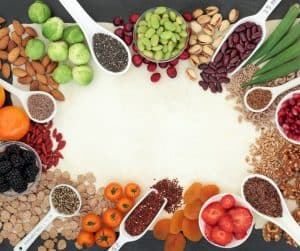
The high demands of sports make athletes more vulnerable to illness, with 65% of athletes experiencing regular colds and infections. Zinc is a key nutrient required for immunity and keeping an eye out for low zinc symptoms, may just make the difference between being sick or great performances.
It can be so frustrating to put in many months of hard training only to be sidelined during a taper or on race day by heaving lungs, debilitating fatigue, and a pounding headache. Sports performance is materialised through consistency, akin to writing a book, one page at a time. Forced breaks from training due to illness detract from progress and drains confidence. Not all athletes rest when unwell and opt to “push through” the illness only to experience prolonged symptoms and more disruption to competition.
Building a robust immunity is all part of a holistic approach to coaching and training. So how do you minimise your risk of getting sick?
There are many nutrients that contribute to a healthy immune system as discussed previously.
Athletes may be more susceptible to being deficient in zinc because exercise, particularly strenuous and endurance exercise, increases zinc requirements, encourages zinc loss through sweating, and changes zinc transportation and metabolism.
In our opinion, zinc plays the most critical role in supporting athletes and immunity.
Zinc’s role in hormone control and immunity
Zinc regulates several crucial processes in both your innate and adaptive immune system. Being deficient in zinc can lead to athletes becoming more susceptible to respiratory illness, particularly in the colder months.
Apart from zinc’s well-established role in immunity, this mineral, contributes to protein structure, regulates gene expression, metabolism and is the second most abundant trace element in the body after iron. Zinc deficiency can impact an athlete through hormone dysregulation (testosterone, thyroid, and growth hormones to name a few) and may affect erectile function and fertility.
Zinc is essential to maintaining optimum performance due to its function in metabolism and healthy cell division – essential in repairing damaged tissues after you exercise.
Studies show being deficient in zinc can lead to a reduction in the number of fast-twitch muscle fibres and muscle mass and performance decline. For Masters Athletes this is of particular relevance as aging is also associated with sarcopenia, the age-related loss of muscle mass, muscle strength, and physical performance.
Zinc also helps maintain blood sugar control and assists with muscle contraction during exercise, glucose metabolism, and glycogen storage.
Zinc also plays an essential role in antioxidant production by increasing antioxidant activity and inhibiting free radical production that may damage tissues, impact liver function, and prevent muscle exhaustion.
Low zinc symptoms
Apart from recurrent colds and other infections, there are many low zinc symptoms.
*Anxiety and depression
*Hormone imbalances
*Poor concentration
*Stomach pain and gas
*Slow healing
*White spots on nails
*Skin issues and acne
*Loss of appetite
*Loss or change of smell
*Changes in taste
Zinc rich foods
The most concentrated sources of zinc are contained in animal products, particularly meat, seafood and dairy. Vegan and plant-based athletes may be more susceptible to zinc deficiency due to reduced dietary intake, lowered gastric acid (which is zinc-dependent) and higher phytate consumption. Phytates found in plant-based zinc-rich foods such as legumes can inhibit zinc absorption.
Soaking nuts and seeds and legumes prior to cooking is a great way to minimise this issue and allow for greater micronutrient absorption.
Iron absorption
The gastrointestinal tract plays an important role in maintaining total body zinc homeostasis by regulating zinc absorption and excretion. In order to boost your absorption, the addition of a probiotic may be beneficial.
In certain situations, zinc supplementation may be recommended. The amount ingested, supplement form, and the timing of zinc matters. Speak to a naturopath or nutritionist with an interest in sport before self-prescribing. You’ll definitely want to avoid zinc toxicity. High zinc levels can have a detrimental impact on your performance through anaemia, copper and iron deficiency and unpleasant gastrointestinal side effects.
Serum blood testing is used by some conventional practitioners to determine zinc levels in the body. Keep in mind 60% of zinc is stored in muscle and 30% in bone therefore serum may not be the best measure of zinc homeostasis. A mineral test can be another alternative method of assessing zinc levels and is available through our clinic as explained here.
If you need help building a robust immune system, book an appointment with our naturopath.
About the Author: Kate Smyth is a Sports naturopath, nutritionist and female-centric running coach. She is the founder of the Athlete Sanctuary- a holistic healthcare clinic for athletes of all levels and sporting codes. Kate has a thirst for knowledge with two bachelor’s and a master’s degree under her belt. She has been involved in sports for many decades and competed for Australia in the Commonwealth Games and Olympic Games marathons with a personal best time of 2 hours 28 minutes. For more information visit https://athletesanctuary.com.au/kate-smyth
References

Kate Smyth is a sports naturopath, nutritionist and female-centric running coach. She is the founder of the Athlete Sanctuary – a holistic healthcare clinic for athletes of all levels and sporting codes.
Kate has a thirst for knowledge, with two bachelor’s and a master’s degree under her belt. She has been involved in sports for many decades and competed for Australia in the Commonwealth Games and Olympic Games marathons with a personal best time of 2 hours 28 minutes.
Targeted naturopathic care, nutrition and holistic coaching for active individuals.
Normatec Recovery systems- hire and purchase
Birregurra -28-30 Strachan Street,
Torquay- 20 Cantala Drive, Jan Juc
TELEHEALTH – Aus wide, New Zealand, Canada and globally (except US)
Melbourne and Ballarat clinics are currently online